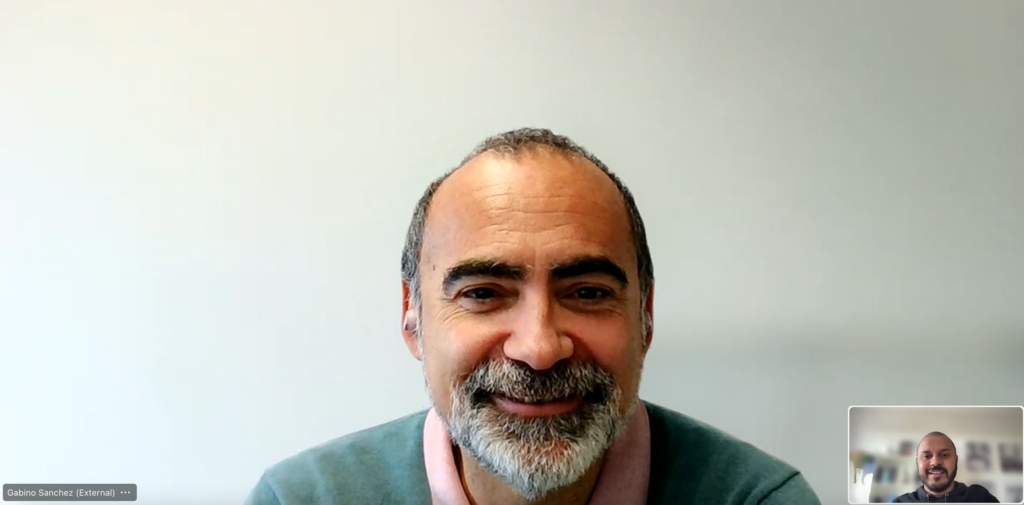Gabino Sánchez-Pérez, a biochemist and Business Development Director at Hudson River Biotechnology with years of experience in biotechnology and agriculture, spoke recently with SECRETed to present his point of view on the development of biobased compounds, especially in his area of expertise.
As the agricultural industry faces growing pressure to adopt greener practices, farmers and companies alike are rethinking traditional methods. Sánchez highlighted the urgent need to transition away from things such as harmful pesticides, noting that farmers are often forced to use such chemicals out of necessity. “It’s not that they are looking forward to using harmful pesticides; it’s that there is no alternative,” he explained, emphasising the lack of available, effective solutions. The benefits of greener alternatives, however, are significant. Sánchez pointed out that newer technologies, such as advanced pesticides and nanoparticle delivery systems, could drastically reduce chemical usage. “We are now developing technologies that we think are going to decrease the number of pesticides by 50, maybe 100 times, which sounds wonderful,” he said. Such innovations promise not only environmental sustainability but also economic savings for farmers by minimising pesticide applications and reducing runoff-related damage.
Despite the promise of these solutions, regulatory hurdles often stall progress. Sánchez criticised the lengthy approval processes in regions like Europe, where getting a new pesticide to market can take seven years and cost millions of euros. “This burden is always there, the time and the money that goes to bring these products to market,” he lamented. The lack of a streamlined approval process also creates an uneven playing field, favoring large corporations over smaller innovators. “Small companies creating greener products and going to market are not really affordable,” Sánchez explained, highlighting the financial and time constraints that deter investment in sustainable technologies. To address these challenges, Sánchez called for a “fast track” regulatory framework. Drawing comparisons to the United States, he argued for a system that accelerates approvals for technologies with proven environmental benefits. “If it’s urgent that we transition to green, well, let’s make it urgent,” he stated.
On the other hand, collaboration between industry, academia, and government is key to overcoming these obstacles. Sánchez cited an inspiring example from Almeria, Spain, where innovative greenhouse technology has transformed a desert landscape into a thriving agricultural hub. “Through technology, they have managed to save around 60% of the water to make it much more sustainable, and now they’re looking forward to an 80 to 90% in the upcoming years” he shared. This success was made possible through coordinated efforts between farmers, companies, and institutions, demonstrating the impact of creating a supportive ecosystem for innovation. “Once there is willingness, and you have the government, banks, and tech companies saying, ‘Can I help you?’… the transition happens,” Sánchez explained.
Consumer awareness and demand can also drive the adoption of sustainable practices. Sánchez noted that while consumers often express a preference for greener products, they may not fully grasp the challenges faced by, for example, farmers. He pointed out a recent example from the Netherlands, where the banning of an insecticide led to widespread crop loss: “The production of cherries was gone because the insecticide that used to be effective against the whitefly has been banned.”
For Sánchez, this highlights the need for better communication and visibility around the benefits and trade-offs of greener solutions. By showcasing successful cases and providing affordable alternatives, the industry can bridge the gap between consumer expectations and agricultural realities.
Finally, Sánchez’s insights underscore the need for a multi-faceted approach to sustainable agriculture and biobased production. Regulatory reform, industry investment, and consumer education must go hand in hand to accelerate the transition to greener practices. “Innovation is there,” he concluded. “It’s just a matter of willingness.” The success of endeavors like those in Almería offers a blueprint for what is possible when stakeholders collaborate to create an environment where sustainability and profitability coexist. As Sánchez emphasised, the time for action is now: “If we are serious about going green, let’s fast-track it and make it happen.”




